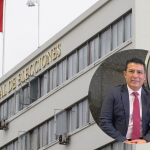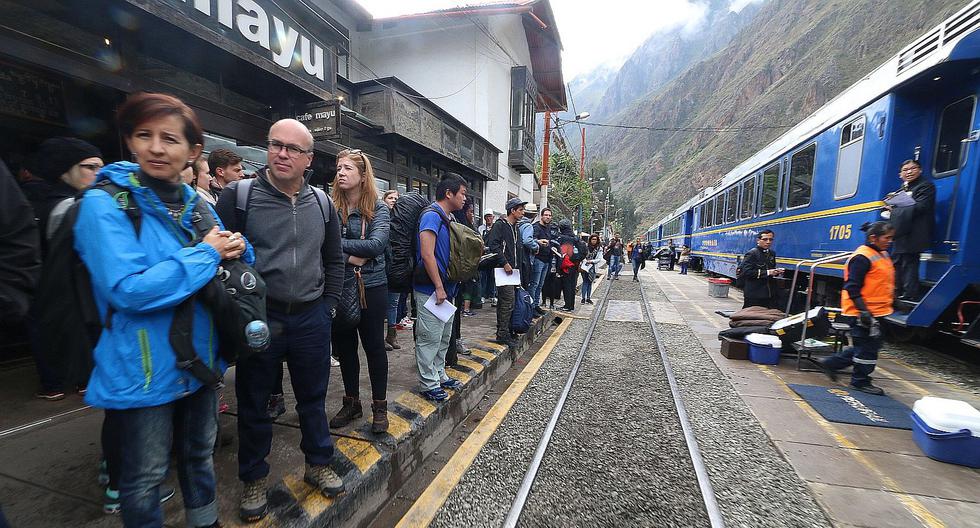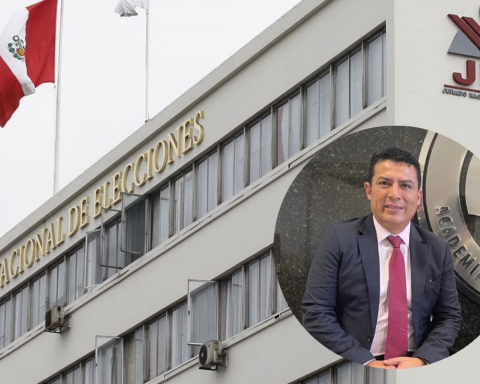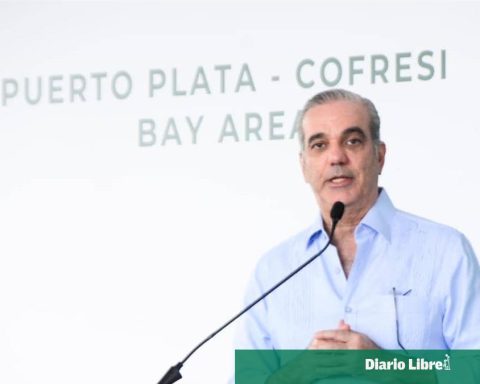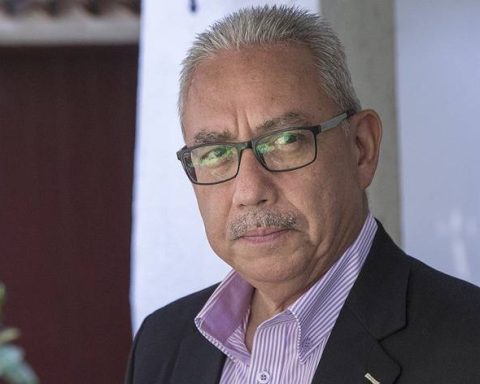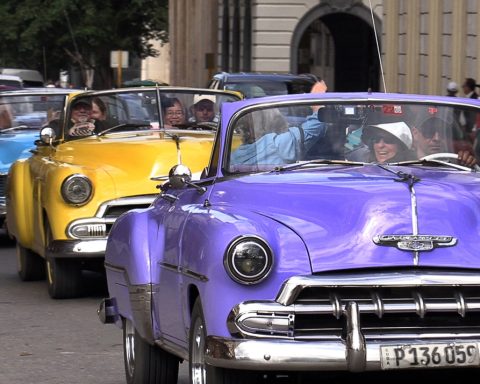From November 6 to 18, the 27th United Nations Conference on Climate Change 2022 (COP27) will be held in Egypt, which seeks to adopt and strengthen the measures implemented to combat the increase in global temperature.
“We are on a path to climate hell and we have our foot on the gas,” declared on Monday the UN Secretary, António Guterres, in his opening speech at COP27.
The world organization tries to prevent the temperature from rising 1.5 degrees Celsius by the end of the century, although the last seven years have been the warmest on record on the planet, agreement with the World Meteorological Organization (WMO).
Latin America, one of the regions with the greatest biodiversity in the world, faces this dilemma as it is one of the areas that produces the least greenhouse gas (GHG) emissions, but whose effects produce more severe droughts and food shortages.
Unmasking the polluters
Of agreement with the Emissions Database for Global Atmospheric Research (EDGAR), in 2021 China and the US accounted for 45.5% of carbon dioxide (CO2) emissions worldwide, one of the most harmful GHGs for the environment.
Compared to these countries, Latin America’s CO2 production is considerably lower. As a whole, the region generated 1,675.45 metric tons (Tm) of CO2 last year, accounting for just 4.4% of global emissions, reports EDGAR.
In detail, two countries are responsible for more than half of the emissions in Latin America: Brazil and Mexicowhich in 2021 together generated 908.2 Tm of CO2, the 54.2% of those produced in the region. They are followed by Argentina, Venezuela, Chile, Colombia, Peru and Ecuador. Nations that, together with Brazil and Mexico, produce 87.2% of regional pollution.
The effects of climate change
In the last 30 years, the temperature in Latin America increased on average 0.2 degrees Celsius per decade as a consequence of global warming, details the most recent WMO report on the state of the climate in Latin America and the Caribbean.
According to the study, as a result of rising temperatures, at least one 30% of the glacier area of the Andes since 1980 and sea level rise in the region reports the fastest growth rates on a global scale.
Also, with atmospheric change, the region faces droughts longer duration and incidence. Last year, Chile, which is at the forefront of Latin America’s water crisis, experienced the longest water shortage in its history, while in South America droughts collectively caused a drop in 2.6% at harvest of cereals in 2021.
The small countries of the Caribbean have also been affected by the gradual increase in hurricanes and tropical storms as a result of climate changes. According to the WMO, the hurricane season in the Atlantic during 2021 was the third most active in the area and the sixth in a row with levels above normal.
The rise in temperature has affected the food safetyparticularly in Central America, the Caribbean, the Andean region and northeastern Brazil, which has forced the population to migrate.
According to the WMO, 7.7 million people in Central America experienced high levels of food insecurity in 2021, while in Haiti 4.3 million they were in acute condition due to lack of food, between September 2021 and February 2022.
Zero emissions: the great goal
To mitigate the effects of climate change, within the framework of COP21 in 2015, 194 countries they signed the Paris Agreement, an agreement that invites nations to limit the rise in global temperature through “ambitious” goals set by each government. However, more and more the United Nations advocates that countries transition to zero GHG emissions as soon as possible.
“The science is clear, any hope of limiting the temperature increase to 1.5 degrees means achieving zero global net emissions by 2050,” the UN Secretary-General explained on Monday.
Of agreement with the British think tank, Energy and Climate Intelligence Unit, in Latin America, only Chile has stipulated by law its transition to zero emissions by 2050, while Barbados (2030), Antigua and Barbuda (2040), Peru, Ecuador, Panama, Belize, Costa Rica, Uruguay and Saint Kitts and Nevis have raised it in some policy for 2050, with the exception of those indicated.
In Brazil, Argentina, and Colombia, the authorities have informally declared the same goal, while in Mexico, the Dominican Republic, Trinidad and Tobago, Haiti, Jamaica, Grenada, Saint Vincent and the Grenadines, and the Bahamas, the issue is under discussion or not. has been addressed.
Faced with a reality that requires greater actions, Latin America must formulate more solid climate policies and collaborate on climate change mitigation and adaptation in a coordinated manner, the WMO states in its report.
In defense of the Amazon
The protection of the Amazon, the largest region of tropical forest on the planet, has been present on the agenda of Brazil, Bolivia, Colombia, Ecuador, Peru, Venezuela, Guyana and Suriname, countries where the forest is located and who in 1978 signed a cooperation treaty to protect it. The agreement, however, was relegated and the Amazon has lost 8,712 km2 of its territory in the last 13 years, reports Greenpeace.
Faced with this reality, the president of Colombia, Gustavo Petro, asked the world this Monday at COP27 for its cooperation to regenerate and protect the Amazon. Also, ad that Colombia will contribute 200 million dollars a yearfor two decades, to save the jungle in his country.
In the region, Petro’s initiative was well received by the president of Venezuela, Nicholas Madurowho congratulated the Colombian leader for his ideas and proposed recovering the treaty, as well as the president of Surinamwho assured that he will support “all the initiatives that arise to protect the jungle”, they detail media local.
From Brazil, under the Government of Jair Bolsonaro, permits were granted to allow the felling of trees and mining in the Amazon, contributing to the deforestation of the area. However, it is expected that with the rise in January 2023 of the elected president, Lula da Silva, the commitment to defend the jungle will be renewed, given that the politician promised it since his electoral campaign.
“In our Government we managed to reduce deforestation in the Amazon by 80%. Now, we will fight for zero deforestation”, asserted Lula da Silva on October 30.
Other commitments at COP27
On the eve of the global meeting in Egypt, Mexico ad that would reduce its GHG emissions by 30% by 2030, a figure higher than its previous commitment to reduce them by 22%. In addition, in the coming days it is expected that the country, hand in hand with the US, will present to world leaders a “very important plan” to address the climate crisis, revealed President Andrés Manuel López Obrador a few weeks ago.
One of the constant complaints at conferences on climate change is the support that developing countries should receive. By the way, the Secretary of Climate Change of ArgentinaCecilia Nicolini asked on Sunday increased financial support for climate action by developing countries and the allocation of funds for loss and damage from climate change.
Argentina’s claim is shared by the Alliance of Small Island States, those countries that, without being the ones who pollute the most, suffer the harsh consequences of climate change. Given this, the group demanded this Tuesday that the oil companies pay for the damage caused by oceanic storms and the rise in sea level.
“The oil and gas industry continues to earn nearly $3 billion a day in profits,” claimed Gaston Brown, Prime Minister of the Caribbean nation of Antigua and Barbuda, who on behalf of the Alliance added that “it is high time that these companies pay a global carbon tax on their profits as a source of financing for loss and damage.”







